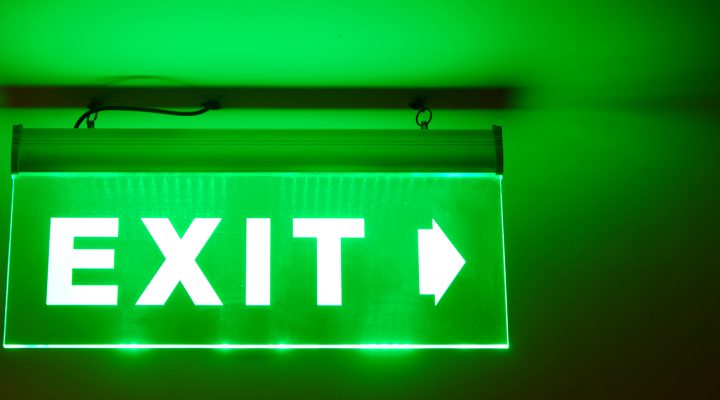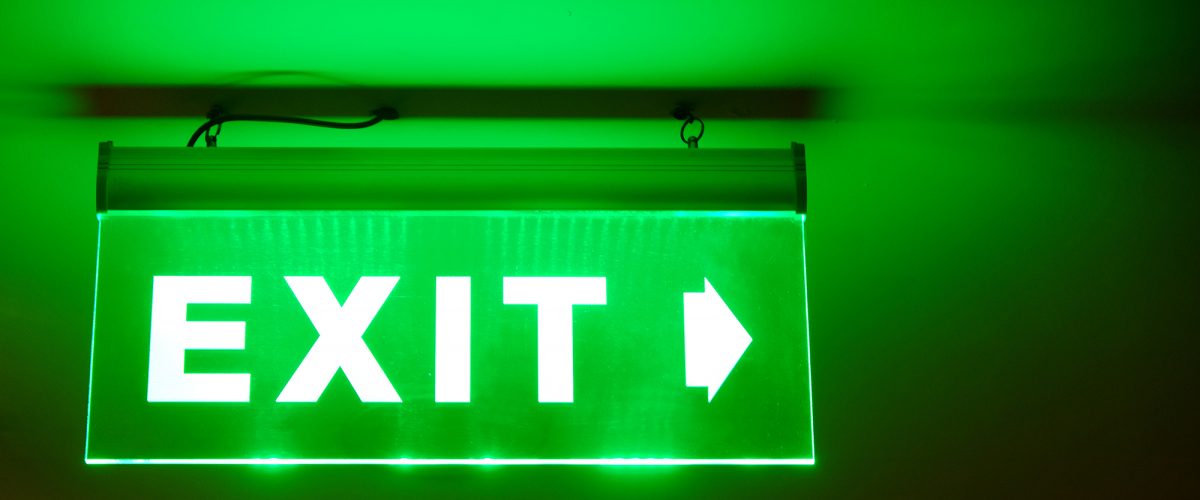Let Us Prey: A Ministry of Scandals has been one of the prominent topics in my circles. As a survivor of the Independent Fundamental Baptist movement, the religious group the documentary focuses on, I was very happy to see these stories spotlighted.
Awareness is critical to understanding and key to accountability. Being nine years removed from the IFB, I have watched their leaders dodge accountability as if it were a death sentence (for some it would mean a prison sentence, so there is that) continuously.
I was surprised to see the documentary released but not surprised a documentary was needed. I personally know of hundreds of cases — abuses and a few murders among them. It’s a perfect storm for a true crime series, and finally someone did something about it.
The original investigative report by the Fort Worth Star-Telegram was referenced and I cheered because many survivors, including myself, helped behind the scenes to blow the whistle on the movement with such an investigation. That was 2018, and it’s now 2023. Nothing has changed in the IFB really — the same abuses continue and the lack of accountability, which is an intricate part of their beliefs, proceeds to be an issue.
“I am one of thousands and thousands.”
Let Us Prey offers representation, something for survivors to point toward other than Shiny Happy People that while IFB, was heavily influenced toward Bill Gothard. I could speak about the issue with sexual abuse in the IFB, which was highlighted in both documentaries, and I have in previous articles, but today I want to focus on the other forms of abuses that harmed survivors as well and explain why Let Us Prey offers validation to so many.
A tree with many branches
There are a lot of survivors of the IFB. I am one of thousands and thousands. And while Jack Hyles is arguably the most impactful leader of the movement, he was not the founder. Nor is the IFB only connected to First Baptist Church of Hammond or Hyles-Anderson College. It’s all over the United States, and the world actually.
If IFB were a tree, you would see it has many branches — Bob Jones University, Pensacola Christian College, Tennessee Temple, Crown College, West Coast Baptist College and many other colleges and megachurches.
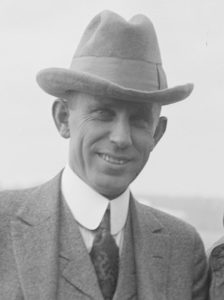
J. Frank Norris
The IFB was founded by J. Frank Norris, a Ku Klux Klan member and a former Southern Baptist, in the early 1900s in Texas. Later, it would experience a boom of new members in the ’50s, ’60s, and ’70s especially, when a modernized world that was exchanging “old-fashioned” values for new dreams was seen as a threat.
The best way to imagine being raised in the IFB for an outsider is to imagine Laura Ingalls Wilder being in a time capsule of the 1950s.
If you were like me, you grew up in one of the movement’s many branches. I hail from an offshoot with influence from Bob Jones University and Hyles-Anderson College and Tabernacle Baptist Church Ministries in Virginia. At their height, they recruited countless military families. They bragged they converted them and while on deployment these members would spread the IFB message all over the world. This ministry trained all my pastors actually.
Raised in isolation
I was born and raised, second generation, IFB. This means from birth I was isolated in the IFB. After suffering in silence for years in the movement, I, like many others, learned that a big goal of the IFB is to isolate children within it so that they continue the mission of the movement. But this comes at a high toll for countless children, regardless of whether they stay or leave. For me, that toll was something I no longer could endure.
That isolation was very traumatic. Those who did not suffer sexual abuse by the movement still suffered. The way we were treated, the way we are delayed in our development — that is a trauma too. It has greatly impacted us children well into our adult years.
We never had the freedom to make mistakes. We were punished for being children learning to crawl or being breastfed. We were beaten. We were hidden away. Forbidden to explore the world around us. We had our own world, a very special one, and we were fortunate to be chosen by God.
“We viewed the world through the teachings of the IFB, and that meant we were wretched, we were wicked, and we never deserved God’s love or the love of our parents.”
Many of us had severe depression and anxiety, along with other mental and physical conditions but without the option for treatment because of the isolation. We battled these alone and with shame. We were shamed for simply existing. We never were good enough. We viewed the world through the teachings of the IFB, and that meant we were wretched, we were wicked, and we never deserved God’s love or the love of our parents. We never were to change the world in our own unique ways; we were to conquer it for Christ. We did not have supportive communities; we had shunning communities.
The sermons. The rules. The hate. The shame. The guilt. The isolation. The fear. The terror. It’s all very damaging. We had no identity except as an IFB. We had no friends except IFB, and those “friends” go on to shun you for anything.
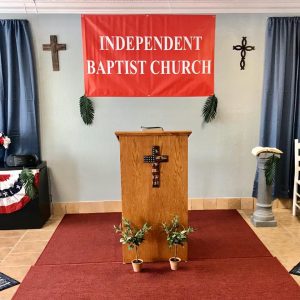 My entire life was church; there was nothing else. It was the pinnacle of holiness, spirituality and Christianity to serve the IFB version of God. As your entire purpose, there was nothing else for you, so you lived your entire life with the rules, the jargon, the dress and the abuse. And this is completely normal and hence current followers defend what they are taught is righteous.
My entire life was church; there was nothing else. It was the pinnacle of holiness, spirituality and Christianity to serve the IFB version of God. As your entire purpose, there was nothing else for you, so you lived your entire life with the rules, the jargon, the dress and the abuse. And this is completely normal and hence current followers defend what they are taught is righteous.
Today, generation after generation are being raised to birth baby after baby to continue the movement. I have no doubt this will sadly continue.
Leaving home
While many stay in the IFB, many also leave it. After living through all forms of abuse — physical, sexual, spiritual, verbal and mental — those of us who exit the movement label ourselves survivors. The IFB still refuses to recognize our existence, but we all recognize each other.
“The IFB still refuses to recognize our existence, but we all recognize each other.”
Before there was a documentary, there were online survivor groups. People of all ages who have escaped gratefully find these lifelines to navigate a foreign world to them and seek out resources to heal. If it weren’t for these safe spaces of understanding, many of us would have died by suicide. I know numerous victims who have heartbreakingly passed after the traumas experienced in the IFB, the shunning because of escaping the IFB, and having no support on the outside. I remember virtually attending a memorial service for one, heartbroken at how they were forsaken by their entire community for simply leaving a church.
Every Sunday across our country, people freely show up and leave churches without suffering shunning, excommunication or abuse. The IFB will argue they are one of those such churches, but freedom doesn’t have such life-changing consequences attached to it. It’s an abuse-ridden system that is diseased from within. Its beginning was that of hate and extremism.
The consequences of growing up and leaving the IFB are equally extreme.
Those who escape the IFB sacrifice everything. We sacrifice our traditions, our language, our dress, our spirituality, our entire identity to no longer live in abuse. Then, we are made to pick ourselves up as if we have not been forever marred and altered by our former communities.
We enter a world we were conditioned to hate and were told hated us only to have to survive in it. Many survivors do not have bank accounts, money, cars or accredited education. Some have no food or health care. Many are homeless or forced to live with IFB relatives. Some survivors leave individually, others with families.
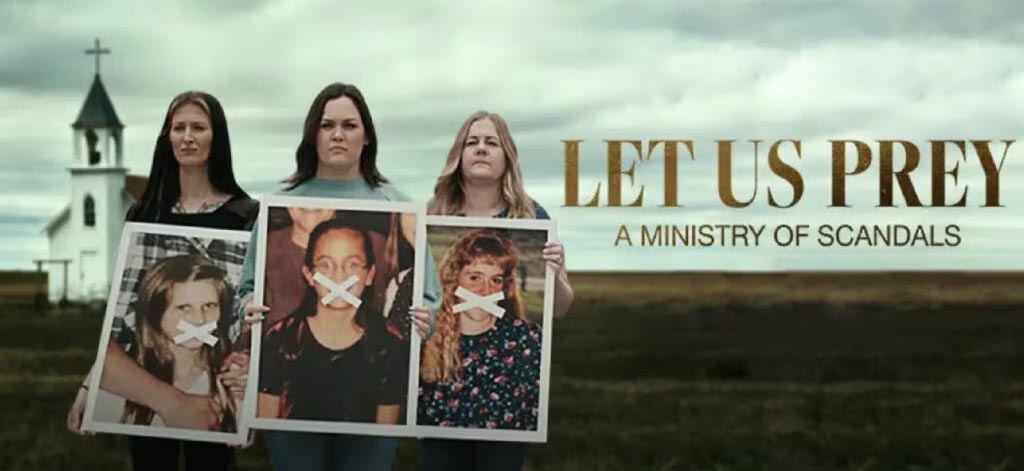
Learning to live
Survivors do not know how to act, speak or dress in the outside world. There is no understanding of what is normal or not. We, as survivors, may come off rude, ignorant or odd, but we are just navigating a foreign world to us. We have to learn to get jobs without any references. We have to participate in interviews without any support. We have to learn the hard way who can be trusted on the outside world and who can’t.
Often, survivors are sexually assaulted or taken advantage of in every way because they are vulnerable. They are more prone to abusing alcohol, drugs, sex and themselves because of not having the support they need to heal after trauma. Add on the trauma and PTSD symptoms that are plaguing survivors and not knowing what it is or how to function without any help, and the road after escaping is an unbelievably hard one to walk. Survivors know only extremes, no calm or safe spaces.
“One day, I decided the IFB had stolen so much it would not steal my life or my future.”
Without my community of survivors to empower me, I would not be here today. I would not be alive. You cannot demand people who have had their entire lives broken beyond repair to keep living. One day, I decided the IFB had stolen so much it would not steal my life or my future. So, I started to focus my fight not on them but toward my happiness.
I built with nothing but determination and the support of survivors. Years later, some of those very survivors would be present on one of the happiest days of my life as I married my loving and caring husband.
Today, I am married, I have a job, I have love and safety — but finding those things was very hard to gain. I’ve suffered beyond words. I walked away because the community that raised me violated me. They polluted my brain. They sickened my body. They wounded my spirit. They stole what are all human rights: autonomy, identity and safety.
A bubble of terror
I did not ask to be born into such a system, no one does, but I decided not to continue the system for the sake of my own survival. I walked away bleeding from the wounds my spiritual and biological family inflicted. I sacrificed my entire life to be free. Still today, I battle the suffering from those sacrifices.
The IFB has created a bubble of terror and abuse. It keeps you in this from birth. It controls everything if you are within its bubble. But it’s just a bubble — a big 8-million-person bubble — but a bubble. And bubbles pop.
To those who were raised Independent Fundamental Baptist and wonder if your trauma from surviving the IFB is valid, it is. And I’m so sorry for all of us. Growing up in the IFB is a trauma in and of itself. There is no way of knowing what we would have been if not being held captive. It has changed each of us in unique ways.
If you are a secular person who watched Let Us Prey and are confused, shocked or wondering what you can do, I’ll tell you: Offer safe spaces for IFB survivors to navigate the world without judgment. They certainly have only known judgment. Offer local resources such as food assistance, housing, health care, mental health support and education. Help them find a job. Be a reference. Help them write a resume.
Most importantly, give them grace. And do not tell them their former religion was one of acceptance or love. It most certainly only preyed on them.
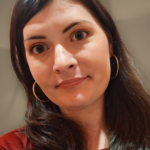 Lydia Joy Launderville is a writer, copywriter, ghostwriter, editor and reading interventionist in Norfolk, Va., who covers an array of topics with a special focus on religious abuse and trauma recovery. She also volunteers for numerous nonprofits, including The Vashti Initiative, which has the first-ever national hotline for victims of religious abuse. When she’s not advocating and writing, she spends time with her family and rescue cat.
Lydia Joy Launderville is a writer, copywriter, ghostwriter, editor and reading interventionist in Norfolk, Va., who covers an array of topics with a special focus on religious abuse and trauma recovery. She also volunteers for numerous nonprofits, including The Vashti Initiative, which has the first-ever national hotline for victims of religious abuse. When she’s not advocating and writing, she spends time with her family and rescue cat.
Related articles:
Why Americans shouldn’t dismiss Shiny Happy People’s warning of a Christian-controlled nation | Analysis by Lydia Joy Launderville
I survived the Christian fundamentalist world that created Josh Duggar | Opinion by Lydia Joy Launderville
The horror of Let Us Prey may not be as far from home as you think | Analysis by Rick Pidcock
I grew up in the church-cult from Let Us Prey; here’s why abuse runs rampant in the IFB | Analysis by Shannon Makujina

